Depression Takes Its Toll

She starred in the multi-million dollar Terminator blockbusters and was one of Hollywood's first female action heroes. Away from the spotlight, however, Linda Hamilton was living a personal hell. Now, Linda, is revealing the truth behind her private battle—a lifelong struggle with manic depression that went undiagnosed for most of her life.
Linda says she is haunted by painful memories of her childhood. "I know that my parents found me beating a puppy with a stick when I was 5," says Linda. "I remembered ever since then that horrible tale of beating a precious soul with a stick. And that's pretty much the way my life went." An identical twin, she says she hated resembling her sister and took drastic measures to rebel, even cutting off her long eyelashes in high school. As Linda lost control, she says she comforted herself with food and ate her way to 170 pounds.
Linda found her passion in acting and moved to Hollywood in her early 20s, but depression shadowed her every move. "I really started to break down," says Linda. "I turned to drugs. Alcohol use. I medicated with lots of cocaine in my early life. Anything that I could do to get my confidence up."
Linda says she is haunted by painful memories of her childhood. "I know that my parents found me beating a puppy with a stick when I was 5," says Linda. "I remembered ever since then that horrible tale of beating a precious soul with a stick. And that's pretty much the way my life went." An identical twin, she says she hated resembling her sister and took drastic measures to rebel, even cutting off her long eyelashes in high school. As Linda lost control, she says she comforted herself with food and ate her way to 170 pounds.
Linda found her passion in acting and moved to Hollywood in her early 20s, but depression shadowed her every move. "I really started to break down," says Linda. "I turned to drugs. Alcohol use. I medicated with lots of cocaine in my early life. Anything that I could do to get my confidence up."
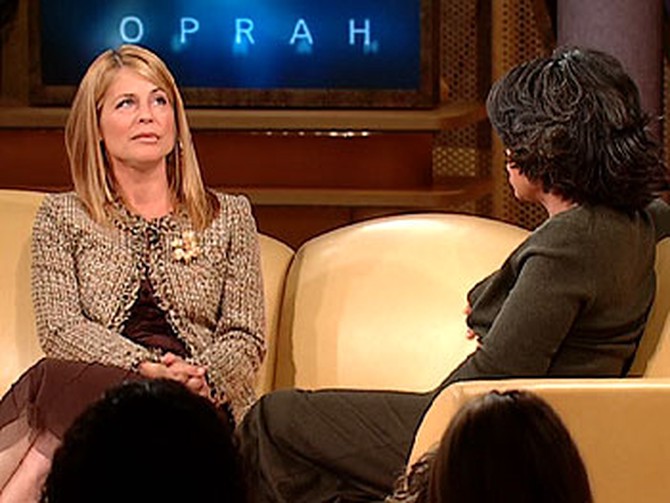
According to Linda Hamilton, her reckless and unpredictable behavior ruined her first marriage to actor Bruce Abbott. When Linda became pregnant, Linda says Bruce couldn't take the ups and downs any longer. "He lived in fear of me," Linda says. "He left me saying I was a bully."
Devastated and alone, Linda says her life had begun to spin out of control—and then she got the phone call to co-star in Terminator 2. Instead of self-medicating with drugs or alcohol, Linda says she became addicted to exercise. "It could not have been better timing for me to get up every morning and get out there and exercise and start to feel stronger and turn myself into this fighting machine. So of course I went too far with the exercise."
Linda and Terminator director James Cameron soon married, but her manic depression threatened this relationship, too. "By the time Jim and I were together, I was really spiraling out of control," says Linda. "I fought him, I fought everything about his life." Her second marriage was beginning to crumble, and after their daughter was born, Linda says her depression even conjured up hallucinations about her children. "I couldn't leave the house without images of them being chopped into bloody pieces."
Eventually, with a very ugly public divorce looming, the pressures of stardom and a high profile relationship proved too much to bear. "I felt like I was gonna die, that I was just gonna lay on the floor and let go and let it all go," says Linda.
Devastated and alone, Linda says her life had begun to spin out of control—and then she got the phone call to co-star in Terminator 2. Instead of self-medicating with drugs or alcohol, Linda says she became addicted to exercise. "It could not have been better timing for me to get up every morning and get out there and exercise and start to feel stronger and turn myself into this fighting machine. So of course I went too far with the exercise."
Linda and Terminator director James Cameron soon married, but her manic depression threatened this relationship, too. "By the time Jim and I were together, I was really spiraling out of control," says Linda. "I fought him, I fought everything about his life." Her second marriage was beginning to crumble, and after their daughter was born, Linda says her depression even conjured up hallucinations about her children. "I couldn't leave the house without images of them being chopped into bloody pieces."
Eventually, with a very ugly public divorce looming, the pressures of stardom and a high profile relationship proved too much to bear. "I felt like I was gonna die, that I was just gonna lay on the floor and let go and let it all go," says Linda.

Linda Hamilton says having children helped her take control of her bipolar depression. "I don't think that 'mentally ill' is a phrase that most people would embrace about themselves," says Linda. "I think it was when I had children that I woke up and said, 'I have to be an adult; I'm not going to scare my children.' I want to be here in every possible way for them and, for 20 years, it had all been about me. Me. Me fighting to make myself feel better. Me fighting to manage the bad feelings. The emotions. The thoughts. The cyclical thoughts that I had. So I didn't want to be that person with my children. And I got help."
After years of fighting medication, Linda says medication has helped regulate her depression for almost 10 years. "Every day's a good day," says Linda. "It's taken me a long time to get my life back. To be the person I was raised to be and the person I always was inside that couldn't find a way out."
After years of fighting medication, Linda says medication has helped regulate her depression for almost 10 years. "Every day's a good day," says Linda. "It's taken me a long time to get my life back. To be the person I was raised to be and the person I always was inside that couldn't find a way out."
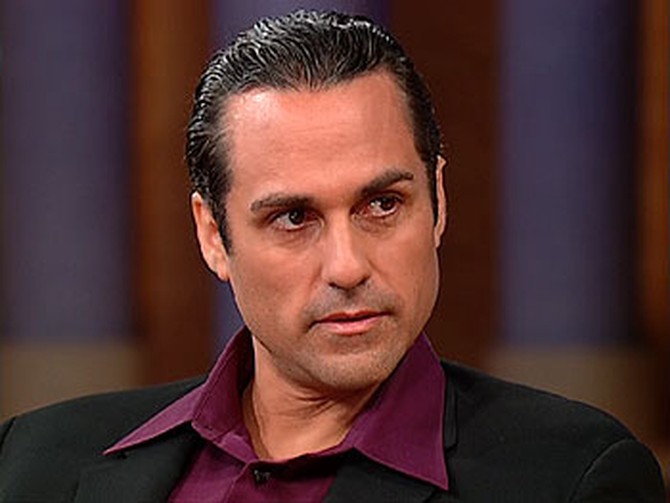
Maurice Benard sizzles as Sonny Corinthos on ABC's hit soap opera, General Hospital. In real life, the devoted family man has been married to his sweetheart, Paula, for 14 years and they live a quiet life in Los Angeles with their two daughters. But Maurice's life isn't as picture perfect as it seems. Behind the scenes, Maurice battles a mental illness that, at its worst, left him suicidal and inside a mental institution wondering if he'd ever get out.
Maurice's struggle with the demons of his bipolar disorder began in his early 20s just as he was beginning his acting career. One night, he slipped into what he calls "the dark side" and turned violent against his mother. Maurice recalls that night: "I grabbed her, kind of physically, by the arm. When I looked at my dad and I said that I was the devil and I was yelling at him. Scary. And my mind was racing a hundred miles an hour. It's kind of like being in a nightmare and not being able to wake up. They had to admit me."
Maurice's struggle with the demons of his bipolar disorder began in his early 20s just as he was beginning his acting career. One night, he slipped into what he calls "the dark side" and turned violent against his mother. Maurice recalls that night: "I grabbed her, kind of physically, by the arm. When I looked at my dad and I said that I was the devil and I was yelling at him. Scary. And my mind was racing a hundred miles an hour. It's kind of like being in a nightmare and not being able to wake up. They had to admit me."

In his 20s, Maurice Benard was diagnosed as manic-depressive. "What's happening inside of you, you almost feel like you want to explode. You have so much emotion. So much energy. Almost like a drug. The high you get from it." For Maurice, the manic highs are always followed by deep, paralyzing depression. "It's just an enormous, enormous amount of pain."
When Maurice met the love of his life Paula, he was honest about his condition and on medication to control it, but Paula had no idea what to expect. Then, in 1993, a few years after they were married, Maurice took a risk and stopped taking his medication. Soon, he landed the role of Sonny on General Hospital. Just three weeks into his new job, Maurice plunged into a dark mania. Rapidly losing control, Maurice couldn't distinguish what was real from what was on TV. He began talking to Paula with his character's lines. "It was probably about a week's time that I saw the transformation," said Paula. "It wasn't just, like, one moment or one day that it happened. But, literally you see someone becoming a totally different person."
Then, one frightening night, Paula witnessed Maurice's final breakdown. While Paula's nieces were sleeping over, Maurice drank half a bottle of wine and threatened Paula's life. "I said, 'Don't cry. If you cry, I'm going to kill you. And I'm gonna kill your nieces,'" Maurice explains. "I put my hand on one of the girls. That was just to scare her. The dark side wants to just…it's a game. Always pushing, pushing, pushing."
When Maurice met the love of his life Paula, he was honest about his condition and on medication to control it, but Paula had no idea what to expect. Then, in 1993, a few years after they were married, Maurice took a risk and stopped taking his medication. Soon, he landed the role of Sonny on General Hospital. Just three weeks into his new job, Maurice plunged into a dark mania. Rapidly losing control, Maurice couldn't distinguish what was real from what was on TV. He began talking to Paula with his character's lines. "It was probably about a week's time that I saw the transformation," said Paula. "It wasn't just, like, one moment or one day that it happened. But, literally you see someone becoming a totally different person."
Then, one frightening night, Paula witnessed Maurice's final breakdown. While Paula's nieces were sleeping over, Maurice drank half a bottle of wine and threatened Paula's life. "I said, 'Don't cry. If you cry, I'm going to kill you. And I'm gonna kill your nieces,'" Maurice explains. "I put my hand on one of the girls. That was just to scare her. The dark side wants to just…it's a game. Always pushing, pushing, pushing."
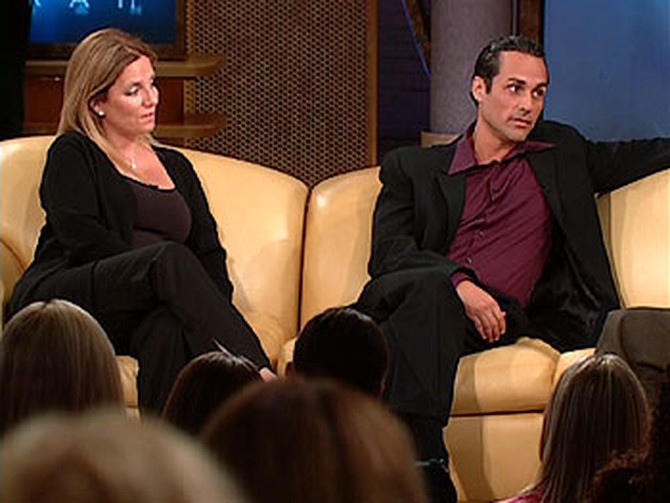
Since that frightening night 10 years ago, Maurice Benard has remained on his medication. But his wife Paula says, "He still flirts with the idea of not taking the medication. He flirts, because now, you know, I wouldn't let him [stop]. There's no way."
Like Linda Hamilton, Maurice recognizes that he self-medicated his depression in the past. "When I was a kid, when I was a teenager and stuff, I used to drink quite a bit and now I can look back and say I was self-medicating myself. I was kind of taught not to cry, because I'm Hispanic, so I couldn't let it out. And if you hold things in too long, you're gonna cry eventually. You'll explode."
Maurice says playing Sonny, his character on General Hospital, helps him express his "dark side." "This character's so dark and intense," says Maurice. "Playing him, I'm able to cry, which I don't normally do. Or I'm able to yell, you know. I don't want to do that at home, so I get to do it at work and leave it there."
Like Linda Hamilton, Maurice recognizes that he self-medicated his depression in the past. "When I was a kid, when I was a teenager and stuff, I used to drink quite a bit and now I can look back and say I was self-medicating myself. I was kind of taught not to cry, because I'm Hispanic, so I couldn't let it out. And if you hold things in too long, you're gonna cry eventually. You'll explode."
Maurice says playing Sonny, his character on General Hospital, helps him express his "dark side." "This character's so dark and intense," says Maurice. "Playing him, I'm able to cry, which I don't normally do. Or I'm able to yell, you know. I don't want to do that at home, so I get to do it at work and leave it there."
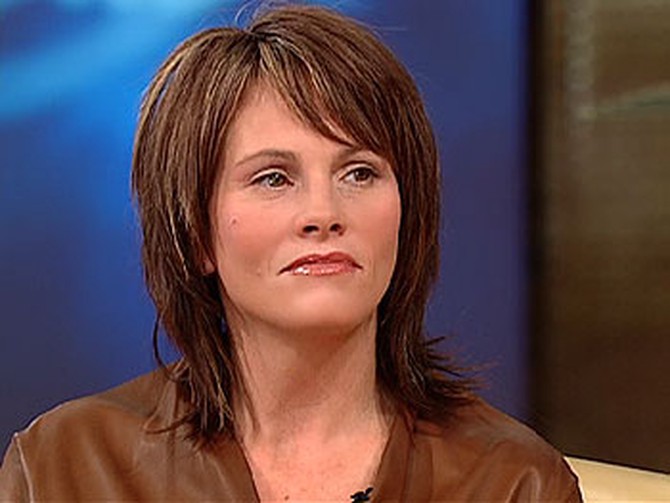
On stage, Shawn Colvin sings haunting songs, but what fans don't know is that she has lived much of the sadness she writes about in her lyrics. In 1999, Shawn walked away with two Grammys® for her hit song "Sonny Came Home." But what none of us knew was that Shawn was hiding a very painful secret—her battle with depression.
Even when she was a young child, she was plagued with dark thoughts. "I remember wishing I was dead," says Shawn. "I don't know, maybe other 4 and 5 year olds think that. It just seems pretty extreme to me." At 19, Shawn says she was diagnosed with an anxiety disorder along with depression. Unlike Linda Hamilton and Maurice Benard, Shawn's depression has no manic phase, no highs to her lows.
When Shawn's feelings of despair grew out of control she says she began drinking heavily. "I drank every night," says Shawn. "I was anxious and depressed and obsessed. And when I drank, I didn't feel that way. I felt carefree. It was really the hangovers that got me. Eventually, after a few years of it, when I would wake up hung over like that, I would want to be dead. I would feel suicidal."
Even when she was a young child, she was plagued with dark thoughts. "I remember wishing I was dead," says Shawn. "I don't know, maybe other 4 and 5 year olds think that. It just seems pretty extreme to me." At 19, Shawn says she was diagnosed with an anxiety disorder along with depression. Unlike Linda Hamilton and Maurice Benard, Shawn's depression has no manic phase, no highs to her lows.
When Shawn's feelings of despair grew out of control she says she began drinking heavily. "I drank every night," says Shawn. "I was anxious and depressed and obsessed. And when I drank, I didn't feel that way. I felt carefree. It was really the hangovers that got me. Eventually, after a few years of it, when I would wake up hung over like that, I would want to be dead. I would feel suicidal."
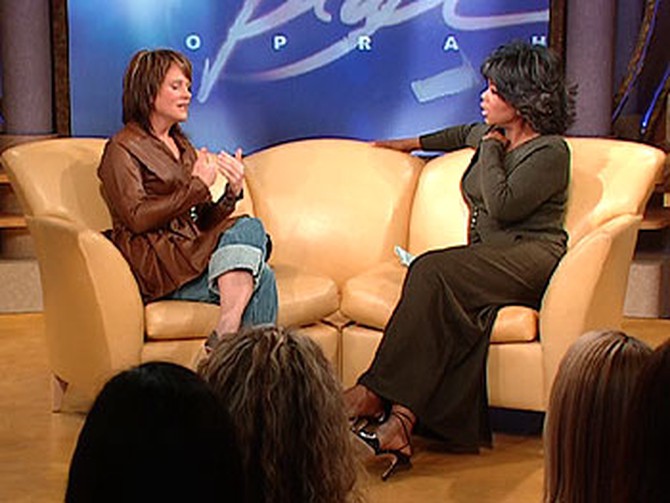
When drinking was no longer enough to numb the pain of her depression, Shawn Colvin says she started starving herself. "I was anorexic for a year," says Shawn. "I felt powerful and in control and pretty. I think it's another response to some sort of illness that has to do with depression and obsession. My obsession with food and weight and appearance didn't stop when I quit being anorexic. It's still there."
As her career took off, Shawn was in denial about her depression. She went on and off her medication, putting herself on an emotional roller coaster until she finally hit rock bottom. "I just sat on the floor against the wall, just heaving sobs," says Shawn. "After it went on for several days in this awful despair and lethargy, it just surrounded me. Going to the bathtub to bathe was too far a journey.
"I really began to think of killing myself. It seemed like the right thing to do. For some reason, I was able, for a millisecond, to step outside myself, and go, 'You're having a calm, internal dialogue about slitting your wrists in the bathtub with your clothes on so it won't freak your sister out. Does something strike you as wrong about that?' And I knew I was in trouble."
As her career took off, Shawn was in denial about her depression. She went on and off her medication, putting herself on an emotional roller coaster until she finally hit rock bottom. "I just sat on the floor against the wall, just heaving sobs," says Shawn. "After it went on for several days in this awful despair and lethargy, it just surrounded me. Going to the bathtub to bathe was too far a journey.
"I really began to think of killing myself. It seemed like the right thing to do. For some reason, I was able, for a millisecond, to step outside myself, and go, 'You're having a calm, internal dialogue about slitting your wrists in the bathtub with your clothes on so it won't freak your sister out. Does something strike you as wrong about that?' And I knew I was in trouble."
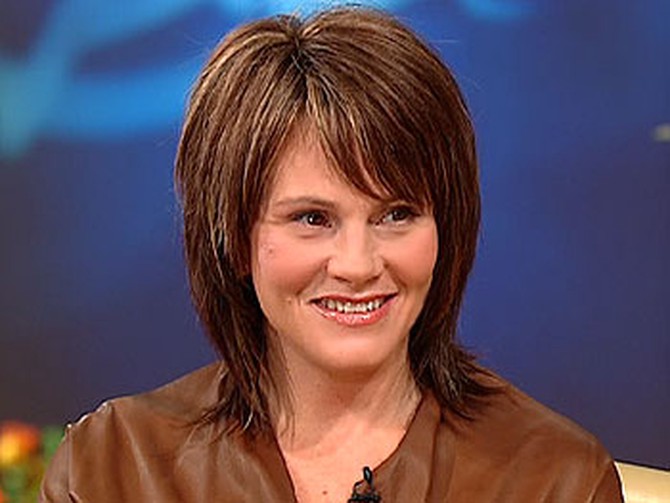
In 1999, Shawn Colvin and her two-month-old daughter were featured on The Oprah Winfrey Show and Shawn was keeping a secret. Already depressed before she got pregnant, Shawn says she was hit with postpartum depression.
"Initially it was really bad," says Shawn. "Part of the way I've dealt with my depressions in the past is I've had the ability, if necessary, to just check out. There have been times when I've not shown up at work … and I knew it was going to be a big deal for me to commit to this baby, to have a baby, but I thought it was the best challenge I could offer to myself and I really could rise to it. And I feel I have. But when that baby comes home, there's this idea that, you know, you're bonded right away. It wasn't true for me. This was a new person. I didn't know her. She didn't know me. And you're taking it all. And that's supposed to happen and I knew it. … But, man, the world went away. It was depression. Probably the best thing about it was that I did not allow myself to leave the situation."
More from Oprah.com: Find resources and information about depression, postpartum psychosis and support groups on Oprah.com
"Initially it was really bad," says Shawn. "Part of the way I've dealt with my depressions in the past is I've had the ability, if necessary, to just check out. There have been times when I've not shown up at work … and I knew it was going to be a big deal for me to commit to this baby, to have a baby, but I thought it was the best challenge I could offer to myself and I really could rise to it. And I feel I have. But when that baby comes home, there's this idea that, you know, you're bonded right away. It wasn't true for me. This was a new person. I didn't know her. She didn't know me. And you're taking it all. And that's supposed to happen and I knew it. … But, man, the world went away. It was depression. Probably the best thing about it was that I did not allow myself to leave the situation."
More from Oprah.com: Find resources and information about depression, postpartum psychosis and support groups on Oprah.com
Published 11/17/2004

